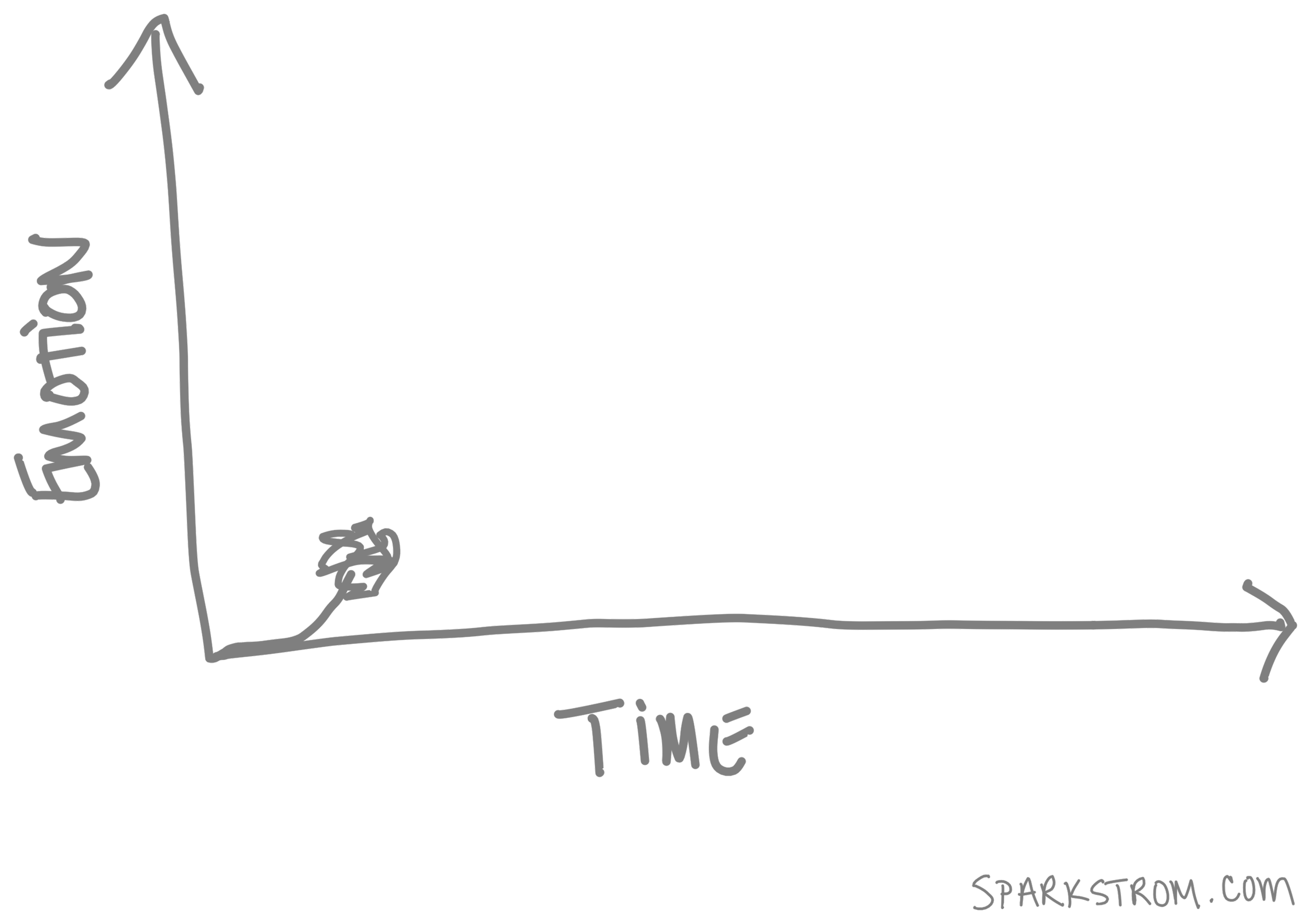Lifespan of an emotion
Do emotions last minutes, hours, days, weeks?
OMG, years?
Emotions arrive, stay for a bit, then depart. How long do they last?
One and a half minutes.
One. Point. Five.
1.5.
That’s 90 seconds.
So says this expert, Dr. Jill Bolte Taylor.
It turns out that an emotion can be gone in the same amount of time it takes me to drink a cup of coffee. How can that be true? The difficult ones last forever and the easy ones last half a second.
I tend to block or shut down difficult emotions when they start to arise, so I haven’t had much experience actually feeling an emotion from beginning to end.
Notice the knot left behind.
E-motions are meant to be in motion though, moving through our bodies.
Being well-practiced in not letting emotions start in the first place, it’s easy to understand why I would be clueless about how long they last.
There are plenty of other reasons too:
Sometimes an emotion repeats, making it seem longer in duration.
Sometimes a different emotion follows altogether. Example: If anger is running through my body, fear might come trucking in behind it. Or maybe it’s the other way around. Either way, unless you’re identifying your emotions, it seems like the whole ordeal is one big long emotion that never ends.
There’s the trouble with the occasional emotion that you can’t stop once it starts. It steamrolls right through your carefully constructed blockades and makes you a messy blob on the floor. Might as well be an amoeba (I had to look up how to spell that). It takes a while to scrape yourself off the floor, so again, 90 seconds seems ridiculous.
Usually, close to always, emotions get messy. It’s easy to get lost in expansive, confusing emotions and body sensations, and it takes a while to get out of the mess.
In the past few years, I’ve been practicing this feeling emotions thing. In particular, difficult emotions. You know the ones: anger, fear, disgust, sadness, stress. If I can allow an emotion to rise (that is, not squash it like a mosquito that’s landed on my arm), do its thing and feel the sensations in my body (not my favorite thing, the mosquito is biting), and then fall away (the mosquito is leaving with my blood), it does seem true that it doesn’t last as long as I think it will (like, forever).
There’s some residue left behind, though, that might take some time to deal with (the mosquito might have left, but my arm is now itchy). This article suggests that we return to baseline in under ten minutes, which happens to be about the same as recovering from a mosquito bite if you don’t scratch it. And if you don’t catch malaria.
I can’t exactly report whether the 90 seconds is true because I start to feel horrible at the exact moment when I would need to grab a stopwatch.
But I can report back that with practice, I’ve found more clarity and ease. And more capacity to handle difficult emotions.
Why would anyone want more emotional capacity?
Well, if you’re like me and have been avoiding your emotions for years (read: decades), there is a lot of old gunk built up that starts to surface one way or another (read: I had no choice). And it turns out that as I cleared out some of the old gunk, I started to feel more grounded in my body and more grounded in life. My newfound connection to life and feeling alive is worth way more than every mosquito bite.
Complement with Don’t Forget to Swirl, Overwhelm, Oh My and On Holding Space for Yourself.


